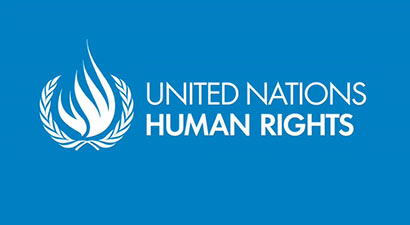Sri Lanka says to cooperate with U.N. call for war crimes inquiry

Sri Lanka said on Thursday it would heed a U.N. resolution urging it to establish a credible judicial process, including foreign judges and prosecutors, to investigate alleged war crimes during its conflict with Tamil rebels that ended in 2009.
The United Nations Human Rights Council, composed of 47 member states, adopted the resolution brought by countries led by the United States and Britain by consensus, without a vote.
Government forces and Tamil Tiger rebels “most likely” committed war crimes including mass killings of civilians during a 26-year war and these should be prosecuted by a special court with international judges, the U.N. human rights office said in a landmark report last month.
The report, which underpinned the resolution, said that despite pledges by the new government of President Maithripala Sirisena to pursue perpetrators, the South Asian state’s criminal justice system was not up to the formidable task alone.
Sri Lankan Ambassador Ravinatha Aryasinha told the Geneva-based U.N. rights forum that his government would cooperate in implementing the resolution.
“Sri Lanka is pleased to join as a co-sponsor of this resolution as a further manifestation of (our) commitment to implement the provisions … in a manner that our objectives are shared by the people and all stakeholders in the country for their benefit,” Aryasinha said.
The text also calls for reforming Sri Lankan security organs and vetting the military to ensure that no personnel associated with serious crimes are retained or recruited into its ranks.
“This resolution could lead to a very strong process or a very, very weak process. It will all depend on how it is implemented,” said Fred Carver, head of the Sri Lanka Campaign for Peace and Justice lobby group.
Amnesty International said the resolution marked a turning point for victims of the conflict by offering them “the prospect of finally getting the truth and justice they deserve”.
The U.N. report cited a pattern of atrocities against civilians in the war, with years of denials and cover-ups, and said that tens of thousands may have been killed in the final stages of the conflict.
Silvia Cartwright, a former New Zealand high court judge who served on a U.N.-backed war crimes tribunal in Cambodia and advised the U.N. inquiry on Sri Lanka, said the inclusion of foreign jurists was indispensable to a credible investigation.
“The most important thing is to establish an institution, a court that is independent, that is guaranteed independence and let the lawyers and judges get on it with it,” Cartwright told a news conference. “Witness protection is absolutely vital.”
(Reuters)
Latest Headlines in Sri Lanka
- Clean Sri Lanka: 1,000 schools undergoing restoration nationwide February 20, 2025
- Cabinet Spokesman regrets Deputy Minister Sunil Watagala’s ‘Buruwa’ remark February 20, 2025
- No threat to national security from isolated incidents – Minister Ananda Wijepala February 20, 2025
- Amitha Wedisinghe passes away February 20, 2025
- Sri Lanka to review court security after Ganemulla Sanjeewa’s assassination February 20, 2025



This effectively takes us back to 1815 when marauding white supremacists raided our emerald isle to loot wealth and sovereignty.
The unanimous resolution calls for setting up a branch of the international criminal court in Colombo. PM Wickremasinghe who proudly recalls his Government’s refusal to sign the Rome treaty in 2001, has capitulated to the white skins and has invited them to our emerald isle.
This will most likely lead to a division of the island. The Leader of the opposition stated in his maiden speech in parliament that the division will not only ensure the Tamil ‘Homeland’ but will create 4 other regions in the South.
Mr Sampanthan is a clever man. Divide the country into 5, almost equal in population in each divided region. The 5 regions cannot fight each other being equal in numbers. There will be no more of the ‘minority’ stuff. Mr Samapanthan will be the king of the ‘homeland’; there will be 4 other kings in the South.
Well, this was the white man’s solution post 1815. Here we go.
Hey Ganjapani!
Hold your tongue without blurting out rubbish. Has any internal investigation resulted in acceptable solutions to the real sufferers? The outcomes can always be predicted 100% even before they start. See how the so called learned Professor of Law G L Peris behaves. He has no conscience to decide what is right or wrong in spite of being an expert in law.The feeble old wanker is a disgrace to the profession and the country. Others cannot be hoodwinked all time as correctly realised by the head of the UNHCR the Iranian gentleman thus resulting in the outcome now where the whole world except Srilanka wants to know the real truth behind the atrocities.
The Americans have been successful in the so called Islamic countries by dividing them and making all the parties equally strong, so that they can kill each other. After that they decide who is a terrosist and who is for democracy, it depens who buys more coca-cola. Then they come with their jets to bomb and open a base to bring democracy that country. Not successful at all, last try Syria. Finals Russia vs USA.